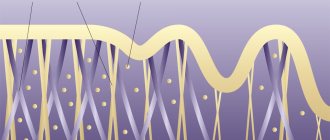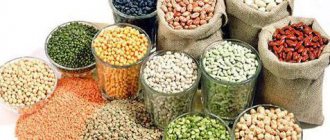Arginine (diaminomonocarboxylic acid) is a non-essential amino acid that is important in the treatment of cardiovascular diseases.
It has anti-ischemic, antithrombotic, antiplatelet properties. Also, as a dietary supplement, it has found its use as a substance that stimulates erectile function in men. It enters the body with food or is synthesized from other amino acids.
general characteristics
Arginine was first isolated in the 1880s from animal horn. Now this substance is known for its numerous positive properties.
Perhaps the most important characteristic of arginine is that it is a substrate in the synthesis of nitric oxide, which regulates vascular tone, provides them with flexibility and has a strengthening effect on the entire cardiovascular system. Due to its ability to increase nitric oxide levels, arginine is considered beneficial in cardiovascular diseases, sickle cell anemia. Nitric oxide is synthesized in various cells of the human body and is involved in many physiological processes.
Content:
- general characteristics
- Arginine for treatment and prevention
- Benefits for the body
- Daily norm
- Contraindications for use
- Side effects of arginine
- Risks of shortage and excess
- Food sources
- Interaction with other substances
Arginine strengthens the immune system, regulates hormonal levels, as well as blood sugar. Enhances male fertility. Research shows that this amino acid can improve blood circulation, which is why it is so important for the treatment of heart disease and impotence.
By neutralizing ammonia and other toxins, it promotes liver detoxification. Laboratory experiments have shown that arginine can reduce fat reserves, speed up metabolism and promote intense weight loss.
High concentrations of arginine are found in the skin, connective tissue and muscles. And thanks to its ability to restore damaged tissue, it is useful for athletes and people suffering from arthritis. It also promotes rapid regeneration, including of nerve, muscle cells and epithelium.
Arginine is an important substance for adequate functioning of the brain, in particular the pituitary gland. Namely, together with ornithine and phenylalanine, it promotes the production of growth hormone.
Beneficial features
Because L-arginine plays such an important role in the body, a deficiency of this amino acid can impair cell and organ function and lead to serious adverse health effects.
This connection is made in several ways. Thus, it can be synthesized from the amino acid citrulline by breaking down proteins or obtained by consuming protein in food.
Additionally, L-arginine can be obtained by taking supplements. They are widely available commercially and can be found in the form of powders, liquids, capsules and tablets. Although the safety of supplemental use of the substance has not been studied in detail, it is often recommended for people with conditions such as:
- protein deficiency;
- burns;
- infectious diseases;
- active sports and muscle building.
Supporting the body during serious illnesses
Arginine becomes essential when the body is in danger due to conditions such as infectious diseases and injuries. The need for this compound increases significantly due to changing physiological needs.
Under these conditions, the body can no longer synthesize arginine, so it must be obtained from external sources. Depletion of this amino acid during severe illness or after surgery leads to serious side effects, including impairment of immune function and blood flow. To avoid these potential complications, you need to take arginine supplements.
Helps move blood through arteries
Arginine is converted to nitric oxide during metabolism in the body. It is a neurotransmitter that helps arteries pump blood and improves overall circulation. Thus, it ensures the prevention of diseases of the cardiovascular system.
Experimental evidence has been obtained that arginine can improve blood flow in the arteries leading to the heart. This phenomenon can relieve blockage of blood vessels, chest pain, angina or coronary heart disease. It is beneficial for people with peripheral vascular disease and therefore poor blood flow to the extremities.
Helps treat erectile dysfunction
Considering the above mentioned effects of arginine, it can help men with erectile dysfunction. In many cases, the cause of this condition is related to heart disease. Problems with circulation in the arteries can reduce the flow of blood to the penis, which can prevent an erection.
According to some researchers, arginine supplements improve the movement of blood throughout the body. Because of this effect, doctors prescribe this compound to patients with erectile dysfunction.
Helps patients with type 2 diabetes
It has been proven that in patients with type 2 diabetes, the level of L-arginine in the body is reduced when compared with that of a healthy person. Therefore, its addition can restore the molecular imbalance in this disease.
Type 2 diabetes provokes oxidative stress in patients. One controlled human study confirms that arginine supplementation can reduce this manifestation of the disease.
At the same time, there is evidence that L-arginine indirectly activates a free radical scavenger protein, which helps reduce oxidative damage in the body. Additionally, its association with nitric oxide levels reduces damage caused by oxygen species.
Combined with lysine helps relieve anxiety
In one experiment, a combination of arginine and lysine was used for administration to people with increased anxiety. The subjects received 3 g of these substances per day. The results confirmed that during stressful situations, the test group released more hormones that reduce feelings of fear and anxiety.
Arginine for treatment and prevention
Arginine is classified as a nonessential amino acid, but under some circumstances it becomes an essential substance for the body. The need for arginine is extremely high during periods of intensive growth and pregnancy. It is also important to monitor the consumption of foods rich in amino acids for people with liver disease, cancer, sepsis, and poor wound healing. The results of some studies have shown that arginine consumption reduces the risk of developing necrotizing enterocolitis in premature infants, has a positive effect on intestinal motility, and protects it from inflammation. In addition, there is an assumption that the use of arginine by pregnant women helps to increase the weight of the fetus.
Intravenous administration of the amino acid (calculated from 50 to 250 mg per 1 kg of weight), according to some scientists, can increase the chances of survival in people after a heart attack or stroke. For diabetics, arginine is useful due to its property of stimulating insulin secretion and increasing the liver’s sensitivity to the hormone.
Consumption of this amino acid has a beneficial effect on the condition of people with tuberculosis or HIV: it helps increase weight and reduces cough. There is also an assumption that this substance prevents infectious complications in people after surgery.
Arginine in general metabolic processes
What is arginine used for outside the world of athletic performance? Let's return to the essence of this connection. This is a basic amino acid that is produced by our body. If it is produced, it means it is needed to satisfy vital needs.
First of all, arginine is a thinning diuretic. In particular, after the arrival of insulin, arginine as a transport protein, flowing through the vessels, cleans out the remaining cholesterol, and most importantly, removes excess sugar along with the secondary urinary fluid. This increases the speed of blood flow and improves the susceptibility of blood bodies to the external manifestation of nitrogen. In fact, arginine acts as a powerful nitrogen donor. This means that it directly affects recovery from any damage, and in addition, it has a pleasant bonus in the form of sexual stimulation, provided that it is consumed in increased quantities.
Arginine is one of the free amino acids from which muscle tissue can be created. This does not mean that it is necessarily found in the muscles, but if necessary, it breaks down into the amino acids necessary for construction. In the first cycles of anabolism, this allows for a short-term increase in the overall endurance and energy efficiency of the body, which is especially important for endomorphs.
Being a regulator of so many processes, it is directly involved in the synthesis of T-lymphocytes, the main cells that protect the body from manifestations of the external environment, creating a favorable background for building immunity.
The same factor can be turned against arginine. People with human immunodeficiency syndrome (AIDS) are strictly prohibited from consuming foods high in arginine. The compound synthesizes new lymphocytes, in which the virus is immediately located, therefore, accelerates its spread through the blood and worsens the residual resistance of the body.
Benefits for the body
Arginine participates in the cycle of conversion of ammonia to urea, thereby reducing the risk of toxins entering the blood and brain, protecting against cirrhosis and various types of hepatitis.
Also, high levels of ammonia in the body lead to insomnia. Therefore, it is important for people with sleep disorders to take care of adequate levels of arginine in the body.
By stimulating the production of the hormones glucagon and insulin, arginine helps build muscle mass and, conversely, prevents fat accumulation. And by increasing cortisol levels, it relieves emotional stress and minimizes the effects of stress.
Thus, the therapeutic benefits of arginine include the following:
- strengthen the cardiovascular system;
- promote the treatment of erectile dysfunction;
- participate in the treatment of anemia;
- act as a growth stimulator in children and adolescents;
- improve the results of bodybuilders;
- promote muscle growth and development;
- reduce the risk of strokes and heart attacks;
- reduce blood pressure;
- strengthen immunity;
- participate in maintaining normal cholesterol levels;
- promote proper blood flow, in particular in the smallest vessels;
- prevent excessive blood clotting in some disease states;
- help strengthen memory and increase learning ability;
- increase insulin sensitivity;
- prevent and treat atherosclerosis and vascular calcification.
Preparations with arginine
Medicines containing the amino acid arginine include hepatoprotectors, immunomodulators, drugs for the treatment of the cardiovascular system, drugs for healing burns, drugs for AIDS patients, rehabilitation drugs after operations, and drugs for the treatment of malignant tumors.
Except for quite serious cases, the substance is used for sports nutrition, as it helps build muscle and burn fat. It is prescribed for impaired potency and dysfunction of the prostate gland in men. Women use drugs to burn extra pounds and improve skin condition. Not everyone knows the benefits of arginine for the reproductive system. Preparations containing amino acids treat infertility in women, since this substance restores reproductive function.
To achieve visual attractiveness or for treatment, the drug can be used only on the recommendation of a doctor . Sports nutrition often includes arginine, but it is also used on the advice of a specialist. Therefore, it will be much easier to create the right menu with sufficient arginine content. A few protein foods a day and you will feel good.
Daily norm
It is believed that the body of a healthy person should have from 50 to 150 micromoles of arginine. This serving is easily obtained from animal protein products. Approximately 5.5 g of amino acid per day is consumed by people whose diet includes a sufficient amount of fish and meat. Vegetarians should take care of additional sources of amino acids.
Through experiments, the approximate daily dose of arginine was established. However, the dosage depends on many subjective factors and ranges from 6-30 g of the substance per day. Usually, there is a recommendation to take about 6 g of the substance for adults, for children - about 4 g.
Arginine is sometimes called a semi-essential amino acid, because although the body produces the substance, there are cases when additional sources may be required (foods rich in arginine, dietary supplements). Increased doses of amino acids are primarily needed by people with serious illnesses and injuries, and children. In addition, during the first months, the body of newborns is also not able to produce its own reserves of arginine, so this amino acid is also essential for babies. After 35 years, the production of amino acids in the body also slows down.
Recent studies have shown that arginine is extremely useful for people with diseases that suppress the immune system (oncology, AIDS and others). But in these cases, as well as during periods of intensive growth, it can be difficult to “cover” the daily requirement of amino acids exclusively from food and by the body’s efforts. At this time, you can resort to the use of dietary supplements.
Is it possible to get by with only products?
Yes, but subject to a balanced and healthy diet. This is not always feasible, so many suffer from a lack of nutrients. To reduce the risk of deficiency, eat meat, fish and dairy regularly. Choose low-fat varieties: the more dietary product you consume, the more arginine will enter the body. Don't forget about plant foods. Fiber from porridges will not only help saturate the body with amino acids, but also improve digestion, and nuts contain many fatty acids. If you are used to following strict diets, give up this habit and switch to a normal healthy diet with plenty of lean meat, fresh vegetables, herbs and fruits. In the summer, lean on watermelons: they are rich in the amino acid precursor citrulline. Knowing which foods contain the amino acid arginine, you don’t have to worry about a deficiency of the useful substance.
Side effects of arginine
Arginine can rarely cause side effects. However, although in isolated cases, diarrhea and nausea were recorded while taking the dietary supplement. Taking the drug in high doses may cause a bitter taste in the mouth. And given that the amino acid has vasodilating properties, it may lower blood pressure. Arginine in the form of intravenous injections contains a high concentration of chlorides, which is fraught with the development of metabolic acidosis. In patients with renal or liver failure while taking amino acids (taken in extremely high doses), hyperkalemia and increased urea levels are possible.
Patients with malignant tumors, those with amino acid intolerance, or those with systemic lupus erythematosus should not get too carried away with the substance.
The benefits of arginine for athletes
Arginine in food products, a table listing which contains an indication of its content in each of them, allows you to maintain good health with a properly formulated diet. Taking additional amounts of this substance is often practiced by those who want to take their performance to a higher level.
If a person exercises and gets enough rest, certain dietary supplements and protein may be recommended. These include arginine or L-citrulline, which is converted into arginine in the body. This compound has great benefits when playing sports due to its effects on the body.
Increases regeneration speed
After a strenuous workout, it is not uncommon to feel extremely exhausted and tired, resulting in several days required to fully recover. This is when arginine can help as it increases nitric oxide levels. This substance promotes blood flow to tissues, stimulating muscle relaxation.
This, in turn, helps deliver large doses of oxygen to muscle tissue. The most important condition for rapid regeneration is that the muscles receive enough nutrients after an intense workout, so improving blood flow is important. It is important to understand that this effect is only achievable with proper nutrition and fluid intake.
Increases endurance and reduces fatigue
Endurance is related to the amount of oxygen supplied to muscle tissue. It is carried in the blood, which helps you train longer without feeling tired.
Because arginine improves blood circulation, it can increase endurance and allow for improved athletic performance. This effect has been confirmed among professional cyclists and track and field athletes who experienced long periods of fatigue.
Promotes fat burning
Researchers have also begun to study the effects of L-arginine on accelerating fat loss. Athletes who are trying to cut their bodies should consider adding a dietary supplement containing this compound to their diet.
Researchers have also studied the effect of nitric oxide on glucose metabolism during exercise. The results showed that in athletes who took arginine, glucose entered the muscle cells much faster.
In addition, the addition of arginine to food causes an increase in the concentration of non-esterified fatty acids and glycerol. This means that the body burns fat as a source of energy.
Risks of shortage and excess
The minimum daily requirement for arginine is from 2 to 5 g.
Stress, atherosclerosis, hypertension and other factors can increase the body's requirements for amino acids. Signals of acute arginine deficiency can include heart failure, coronary artery disease, angina pectoris, growth retardation, and liver problems. Other symptoms: high blood pressure, impaired hormonal metabolism and obesity, early aging, poor brain function.
An excess of the substance can cause allergic rashes, hives, tremors in the arms and legs, and at the psycho-emotional level - nervousness and aggressiveness.
Compound
In its free form, this amino acid is not attached to protein or other compounds.
Arginine is essential for the human body for many reasons. It is one of three substrates for the formation of creatine, an essential nutrient compound, the deficiency of which causes mental retardation. It is used in the body and in the reproduction of agmatine, a signaling molecule, in the urea cycle it is an intermediate component in combination with L-ornithine and L-citrulline.
Arginine also promotes protein synthesis and stimulates the release of insulin. As part of the nitric oxide cycle, the compound provides significant benefits to physically active people. This makes it a popular dietary supplement for athletes.
L-arginine supplements come in capsules or powders. Both forms are equally effective, however, the former may require 2 to 3 doses per day, while the latter usually requires only one. Powders also provide faster results because the body absorbs them faster, but they must be mixed with liquid before ingestion.
Also commercially available are creams with L-arginine, which are used to improve blood circulation. Injections of the substance can only be carried out under the supervision of a physician.
Food sources
The best sources of arginine are protein-containing foods: meat, milk, soy, nuts (peanuts, walnuts, pine, almonds), pumpkin seeds, eggs, snails, peas.
Foods rich in arginine
| Product (100 g) | Arginine (g) |
| Pine nuts | 2,4 |
| Walnuts | 2,2 |
| Pork meat | 1,4 |
| Chicken breast | 1,4 |
| Salmon | 1,2 |
| Chicken eggs | 0,8 |
| Milk | 0,1 |
Meanwhile, it is important to know that heat treatment of foods significantly reduces the level of arginine in food. Therefore, whenever possible, you should focus on raw foods. These could be walnuts or cashews, which contain a very high concentration of the substance.
Best materials of the month
- Coronaviruses: SARS-CoV-2 (COVID-19)
- Antibiotics for the prevention and treatment of COVID-19: how effective are they?
- The most common "office" diseases
- Does vodka kill coronavirus?
- How to stay alive on our roads?
Arginine affects the secretion of insulin, glucagon, and growth hormone. Helps in rehabilitation after injuries, collagen formation and stimulation of the immune system. Increases the number of sperm and T-lymphocytes. Accelerates wound healing and prevents the formation of tumors.
Where is arginine found?
Since it is an amino acid, its main sources are protein ingredients. Products rich in arginine are equally animal and plant foods, which is important for vegetarians and raw foodists. With a balanced diet, there is no deficiency in the substance; if there is a slight deficiency, you need to increase the proportion of proteins in the menu. And only in the most extreme cases switch to tablets, because food, in addition to arginine, is also a source of many other valuable compounds.
Products of plant origin
Among plants, good sources of amino acids are:
- Cereals. In this group, buckwheat leads by a wide margin, followed by oatmeal.
- Cereals and legumes. Soybeans, peas, and lentils well compensate for the deficiency of the compound. Wheat flour does not contain very many amino acids, so if possible, it should be replaced with buckwheat.
- Nuts. Everything in this category is healthy: 100 g of product can satisfy half the daily requirement. The richest sources are peanuts, pine nuts and hazelnuts. It’s not for nothing that they are added to all fitness bars.
- Seeds. It is good to include sunflower and sesame seeds in dishes. But pumpkin seeds contain the most amino acids; no other food product can compete with them.
But vegetables, mushrooms, and dried fruits contain quite a bit of protein, so they can only claim to be additional sources of L arginine. There is a little more of it in porcini mushrooms, followed by cauliflower and onions.
Animal products
Products containing arginine in high concentrations are animal foods. It is rich in all amino acids. In order not to lack proteins, you need to include in your diet:
- Dairy products. Cheeses (Parmesan, Brynza), as well as cottage cheese, including low-fat cheese, are especially useful.
- Eggs. The richest part is the yolk. It is beneficial to add dried egg powder to baked goods, but it is difficult to find on sale.
- Meat. To the great delight of those who are on diets, lean meats (chicken, turkey, veal) are significantly richer in arginine than pork.
- Fish and seafood. In this category, the most valuable is red fish and its caviar. But the quite affordable pollock, mackerel, and herring are also good suppliers of the compound. Among seafood, squid is the leader.
On average, 100 g of such animal food provides 20-30% of the amino acid requirement.
Table: which foods contain arginine in large quantities
| Product | Arginine content, mg per 100 g |
| Pumpkin seeds | 5300 |
| Peanut | 2980 |
| Soybeans | 2600 |
| Walnuts, pine nuts, hazelnuts | 2300-2400 |
| Almonds, cashews | 2100-2200 |
| Lentils | 2050 |
| Sesame | 1900 |
| Peas | 1600 |
| Squid | 1560 |
| Brynza, Parmesan | 1200-1300 |
| Chicken, turkey | 1200 |
| Buckwheat | 1120 |
| Cod, mackerel, pollock, pink salmon, fatty herring, pike, pike perch | 1000-1100 |
The functions of arginine in the body are diverse. This is an indispensable assistant in the operation of all systems. If you think through your diet and approach nutrition wisely, then there will never be a shortage of this substance.
The action of arginine in more detail for some pathologies
The effect of arginine in various diseases:
- CNS - improves the transmission of nerve impulses and enhances the activity of nerve cells.
- CVD - enhancing the tone of blood vessels and dilating them, prevents the formation of plaques, because the dilated vessel is more difficult to block. In addition, it increases cardiac output.
- Liver - arginine synthesizes protein, during which toxic ammonia is removed from the body. In this case, ammonia does not enter the blood, which would seriously damage the brain. The liver does this job. If she is sick, detoxification will be impaired. Increased ammonia can cause insomnia, so it is best to take arginine supplements in the evening.
- Helps in the breakdown of fats, which helps women lose weight. The combination of arginine + glutamine (an amino acid with similar properties) cleanses the liver very well and helps in removing ammonia. Activates energy metabolism.
- Diabetes mellitus – improves microcirculation and protects beta cells from destruction; increases insulin synthesis.
- For diabetes, it is better to take the drug in the form of a dietary supplement with vitamins, minerals and antioxidants.
- Stress – increases cortisol levels and helps the body fight stress, relieving psychological tension.
Thus, it turns out that arginine is able to maintain the tone of the cardiovascular system, immunity and central nervous system - they are the guarantors of health. Therefore, today it has moved from the category of conditionally essential amino acid to the category of essential amino acid according to very significant indicators. Along with its advantages, the drug has contraindications and side effects too.
Possible contraindications
Not compatible with arginine:
- herpes (HSV viruses use arginine for their own replication);
- pancreatitis and nephritis with anuria;
- BA;
- disorders of electrolyte metabolism;
- schizophrenia;
- hypotension;
- gestation;
- GV;
- oncology;
- hemophilia
- individual intolerance;
- age up to 18 years (especially for children during the period of active growth, as it is possible to provoke gigantism).
Caution should also be exercised in patients at risk for type 2 diabetes. In them, arginine can cause hormonal shifts with severe hyperglycemia
With arthritis and infections, the inflammatory process can worsen. But it has been noted that even in these cases, a dose of 1 g/day for 2-3 weeks does not cause side effects, in which case the amino acid acts mildly.
An overdose of arginine may cause fainting due to vasodilation. The maximum safe dose is 6.8 g/day. There are also medications that should not be taken simultaneously with arginine: anticoagulants; Nitroglycerine; Viagra.
Signs of a lack of arginine production
The following pathological processes may indicate amino acid deficiency in the body:
- frequent infections;
- skin and hair problems;
- hormonal imbalance;
- chronic fatigue;
- depression;
- cardiovascular diseases;
- high blood pressure;
- rapid aging of the body, which does not correspond to age;
- renal dysfunction;
- pain in the right hypochondrium characteristic of cholelithiasis;
- obesity;
- decrease in muscle tissue;
- growth retardation;
- decreased mental performance;
- problems with conception.
Harmful properties
Oral or topical use of L-arginine is generally considered safe.
But in some cases, taking a substance can cause the following conditions:
- nausea;
- diarrhea;
- abdominal pain;
- bloating;
- allergic response;
- inflammation of the airways or worsening asthma symptoms;
- exacerbation of gout.
L-arginine is not recommended after a heart attack due to concerns that it may increase the risk of death. In addition, this dietary supplement may aggravate gout, allergies, or asthma. If you have these conditions, you should use it with caution.
You must be careful when taking L-arginine even if you have herpes in your body (including genital herpes). Consuming too much of this supplement could potentially activate the virus that causes these conditions.
Signs of excessive substance in the body
The benefits of arginine for the body are undeniable, but consuming it in large quantities is dangerous for the following pathologies:
- systemic lupus erythematosus;
- schizophrenia;
- neoplasms of various origins;
- exacerbation of herpes infection;
- bronchial asthma;
- Pancreatin.
Additional arginine intake is not needed for people aged 16-35 years. For children, the daily dosage of the substance is 4 g, for adults - 6 g, for people actively involved in strength sports and bodybuilding, it is necessary to consume it up to 9 g per day. Taking arginine in a dosage of more than 15 g leads to an overdose.
An excess of amino acid may be indicated by causeless irritability, a drop in blood pressure and trembling of the limbs. Taking arginine in large doses by children can lead to gigantism. Excessive intake of the amino acid is believed to increase the risk of Alzheimer's disease.











